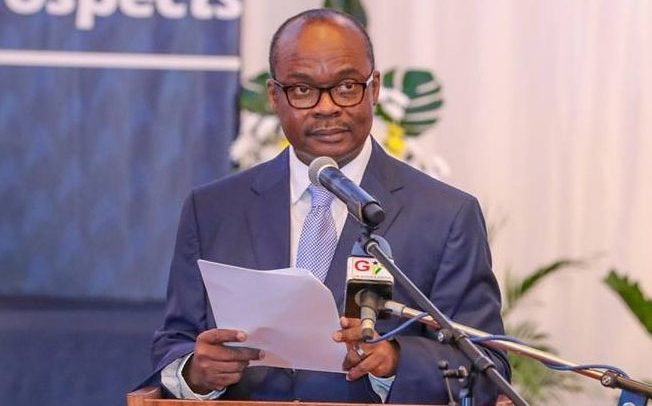The Bank of Ghana is preparing directives to regulate unclaimed balances and provide consumer protection requirements for digital financial services and products, Governor of the Central Bank, Dr. Ernest Addison, has said.
This means digital financial service providers would have a clear direction as to how to treat monies in locked on their platforms and have not been accessed or used for an exceptionally long period of time. the directive would also provide clear regulations protecting consumers from unprofessional acts of service providers.
The directives to regulate unclaimed balances and consumer protection will be a milestone in the Fintech and Innovation Office’s activities as huge sums of unclaimed monies are piling up in the accounts of digital financial service providers with no clear regulation to aid the institutions take it off their books.
The move is being spearheaded by the Fintech and Innovation Office of the BoG set up in May 2020 to be responsible for financial technology and payment innovations. The Office is also expected to drive the digitisation agenda of the Bank, and is responsible for licensing and oversight of dedicated electronic money issuers (mobile money operators), and payment service providers (PSPs), among others.
Since the introduction of the Payment Systems and Services Act, 2019 (Act 987), which permitted Bank of Ghana to license and supervise FinTechs, the BoG has seen significant interest from both local and international entities in securing Payment Service Provider licenses to operate in the country. The Bank has so far issued 8 payment service providers’ licenses; they include 3 in the electronic money issuer category, four 4 in the Enhanced Payment Service provider category and 1 in the Standard Payment Service Provider Category.
The latest data on digital transactions and payments, especially mobile money transactions and GhIPSS Instant Pay (GIP) reflects significant growth. Cumulatively from January to October 2020, the number of mobile money transactions increased to 278 million, up from 188 million at the same time last year. In terms of values, total mobile money transactions more than doubled to GHȼ58 billion, from GHȼ28.4 billion last year.
The GhIPSS Instant Pay (GIP) recorded exponential growth in both volumes and values as real time electronic transfers between banks increased significantly. The central banks says it recognises the key role that financial markets play in the effective transmission of monetary policy; therefore, in the three and-a-half years, it has championed reforms in the repo markets resulting in the adoption and implementation of a Global Master Repurchase Master Agreement (GMRA) effective October 1, 2020.
The BoG believes these reforms have led to the most improvement in Ghana’s ranking in the ABSA Africa Financial Markets Index, climbing five places on the pillar for the 13 “Legality and enforceability of standard financial markets master agreements” in a single year. Data at the Central Securities Depository (CSD) indicates that repo activity under the Global Master Repurchase Agreement (GMRA) is yet to pick up and banks continue to use collateral lending rather than repo under GMRA transactions. According to the BoG Digital financial services have experienced increased adoption in the country over the last decade and more attention is being giving to streamline its operations.










